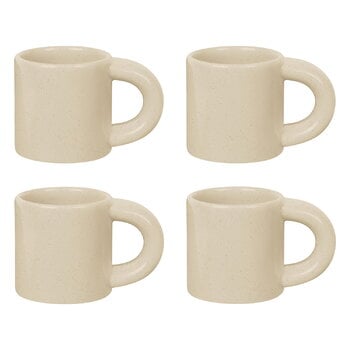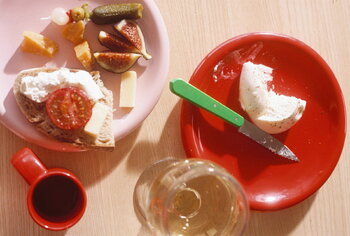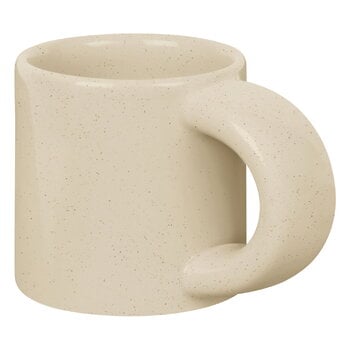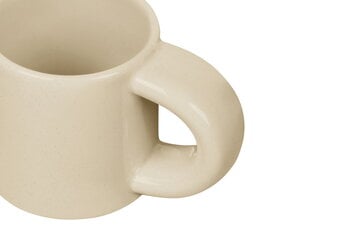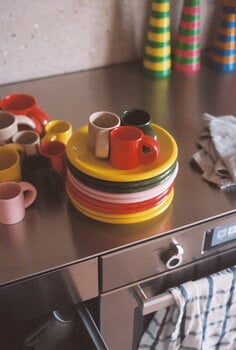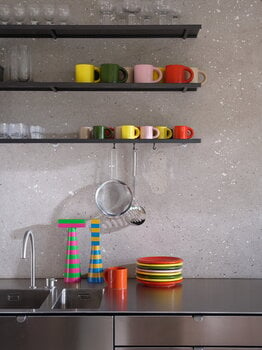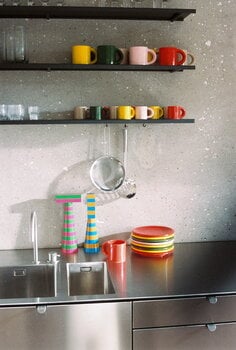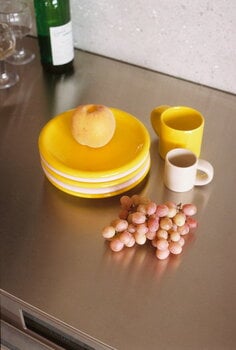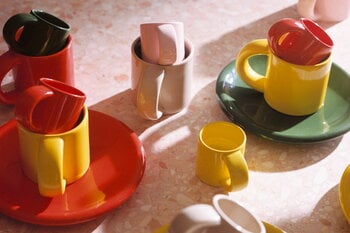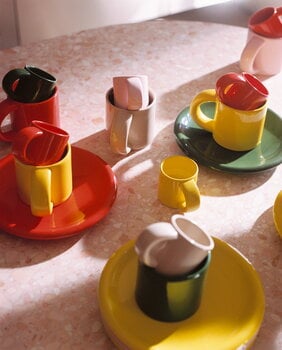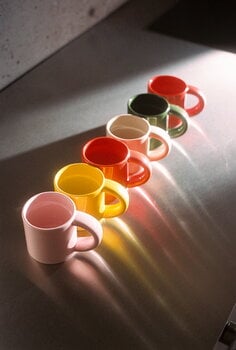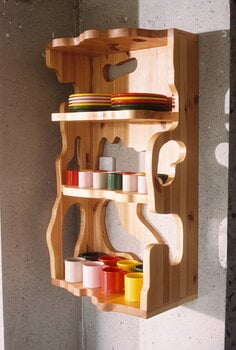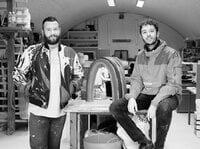Hem's Bronto espresso cup is part of a tableware collection that is not shy about its existence. Designed by Supergroup, the cup has a recognizably bulky and chunky design – dinosaur-like, one might even say. So no wonder the ceramic dinnerware has actually got its name from the giant Brontosaurus! Exaggerated curves bring the glossy glazed mug to life and vibrant colours put a smile on your face at the breakfast table, no matter how tired you were before your first cup of coffee. The package contains four espresso cups.
Bronto espresso cup, 4 pcs, sand
Hem
Description
Hem's Bronto espresso cup is part of a tableware collection that is not shy about its existence. Designed by Supergroup, the cup has a recognizably bulky and chunky design – dinosaur-like, one might even say. So no wonder the ceramic dinnerware has actually got its name from the giant Brontosaurus! Exaggerated curves bring the glossy glazed mug to life and vibrant colours put a smile on your face at the breakfast table, no matter how tired you were before your first cup of coffee. The package contains four espresso cups.
Product details (8)
- Material
- Ceramic
- Colour
- Beige
- Width
- 9 cm
- Depth
- 6 cm
- Height
- 6 cm
- Diameter
- 6 cm
- Capacity
- 100 ml
- Care instructions
- Safe for dishwasher.
- Product ID
Designer
Supergroup, the design studio formed by ceramic artist Ian McIntyre and illustrator John Booth, has its roots in London, where the duo shares the same studio space. In addition to space, they also share an appreciation for design that is striking yet functional and accessible to everyone. Together they create products that are not only beautiful but also practical, often with recognisable, strong formal language and bright, vibrant colours.
View all productsReviews (0)
Sustainability
The Product Sustainability Framework, our criteria of sustainable design, helps you find the most sustainable products in our selection. Read below which sustainability criteria this product has met.
Working conditions & labour 8/9
-
Equal opportunities for all employees
-
Commitment to UN Global Compact, fair compensation for all employees
-
Corporate responsibility requirements defined and communicated for suppliers
-
Systematic work for improved inclusion and well-being in the workplace
-
Transparent supply chain
-
Suppliers' compliance to a code of conduct ensured
-
Compliance to the UN Guiding Principles on Business and Human Rights ensured in the supply chain
-
Support for community involvement in the supply chain
-
Direct suppliers audited and certified
Eco-friendly production 8/9
-
Fair and resource-wise water-use in production
-
No incineration or landfilling of returned items
-
No use of endangered species as materials
-
No direct environmental emissions or waste (excl. GHGs) from production
-
The sustainability of direct suppliers' production is addressed and monitored
-
Production and material sourcing that respect biodiversity, animal rights, and natural ecosystems
-
Material-efficient and ecological packaging
-
No potentially harmful chemicals used in own production
-
Positive impact on nature’s well-being through operations that regenerate natural ecosystems
Climate impact 4/8
-
Company's direct greenhouse gas emissions identified and commitment to reduction
-
Product's carbon impact identified and commitment to reduction
-
Guidance on energy- and eco-efficient use of the product
-
100 % renewable energy in own production and operations
-
Contribution to climate initiatives beyond the brand’s direct operations
-
Low-carbon or compensated transportation
-
Carbon footprint of the product calculated and goals set to reduce it
-
Carbon neutral or carbon negative product
Sustainable materials 5/6
-
Sustainable and long-lasting material choices
-
No harmful or hazardous substances
-
Responsible raw material sourcing and production
-
Materials suited for circularity: monomaterials, recyclable finishings, renewable or recycled contents etc.
-
Ecological materials: natural, biodegradable, recyclable or recycled contents
-
Outstanding materials in terms of innovativeness, responsibility, sustainability and circularity: local production or sourcing, 100 % recycled content, C2C-certification etc.
Circular design 3/5
-
High aesthetic quality promoting long-term use of the product
-
Technically durable product design and material choices
-
Design for enduring life-long quality
-
Design and support for product maintenance, repair and upgradability
-
Innovative circular design solutions: circular service system, resale platform, remanufacturing, collection of used products, etc.
